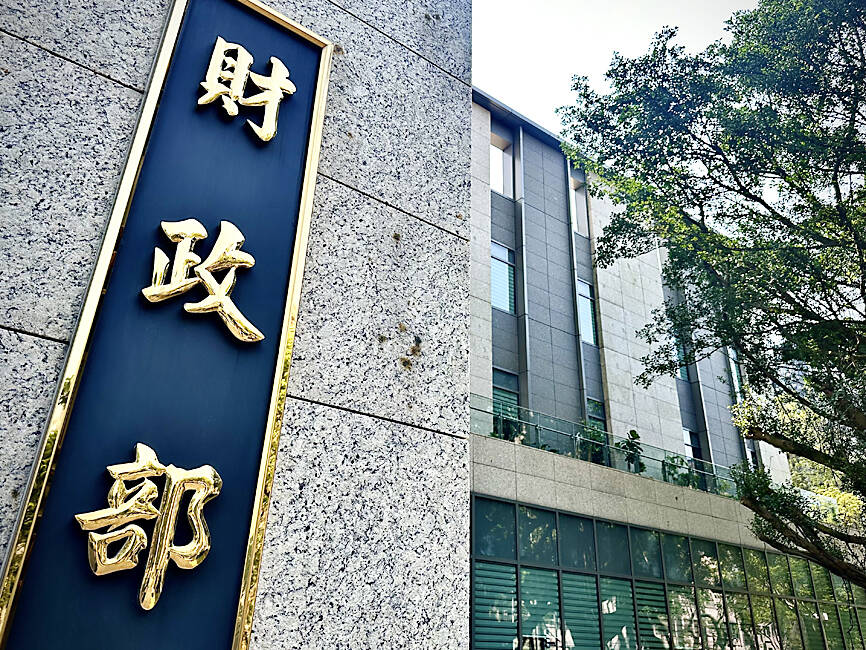The Customs Administration yesterday said that it had impose an anti-dumping duty on Portland cement and clinker from Vietnam for five years beginning on Monday.
Cement products imported from Long Son Co and its affiliate Long Son Industrials Co face a tariff rate of 13.59 percent, the customs agency said in a statement.
Thang Long Cement JSC would be taxed at 19.25 percent, while Vissai Ninh Binh JSC, Xuan Thanh Cement JSC and Vicem Ha Tien Cement JSC-Vicem Ha Tien Cement Sales & Services Enterprise would be subject to a 14.82 percent rate, the statement said.

Photo: CNA
All other Vietnamese manufacturers and exporters would be taxed at 23.2 percent, it said.
The decision was jointly finalized by the Ministry of Finance and the Ministry of Economic Affairs, confirming that the Vietnamese companies had engaged in dumping and caused substantial harm to local Taiwanese producers, the statement said.
The economics ministry also found no sufficient evidence that the duties would have a markedly negative effect on Vietnam’s overall economic situation, the statement added.
To qualify for the individual duty rates, Taiwanese importers must submit documentation identifying the exporter or manufacturer for customs review, otherwise, the highest specified rate would apply, it said.
An investigation into Vietnamese cement dumping was launched in August last year, after the Taiwan Cement Industry Association applied for anti-dumping duties, citing suspected dumping and harm to domestic industries.
Meanwhile, the Customs Administration announced that anti-dumping duties on carbon steel plates from Ukraine would remain suspended, taking into account the effect on the country’s overall economic interests.
The steel policy, first implemented on Aug. 29, 2023, would remain in effect until Sept. 13 next year, it said.
Anti-dumping duties on the products were originally in place for Brazil, China, India, Indonesia, South Korea and Ukraine from Sept. 14, 2022.

SEMICONDUCTORS: The German laser and plasma generator company will expand its local services as its specialized offerings support Taiwan’s semiconductor industries Trumpf SE + Co KG, a global leader in supplying laser technology and plasma generators used in chip production, is expanding its investments in Taiwan in an effort to deeply integrate into the global semiconductor supply chain in the pursuit of growth. The company, headquartered in Ditzingen, Germany, has invested significantly in a newly inaugurated regional technical center for plasma generators in Taoyuan, its latest expansion in Taiwan after being engaged in various industries for more than 25 years. The center, the first of its kind Trumpf built outside Germany, aims to serve customers from Taiwan, Japan, Southeast Asia and South Korea,

Gasoline and diesel prices at domestic fuel stations are to fall NT$0.2 per liter this week, down for a second consecutive week, CPC Corp, Taiwan (台灣中油) and Formosa Petrochemical Corp (台塑石化) announced yesterday. Effective today, gasoline prices at CPC and Formosa stations are to drop to NT$26.4, NT$27.9 and NT$29.9 per liter for 92, 95 and 98-octane unleaded gasoline respectively, the companies said in separate statements. The price of premium diesel is to fall to NT$24.8 per liter at CPC stations and NT$24.6 at Formosa pumps, they said. The price adjustments came even as international crude oil prices rose last week, as traders

SIZE MATTERS: TSMC started phasing out 8-inch wafer production last year, while Samsung is more aggressively retiring 8-inch capacity, TrendForce said Chipmakers are expected to raise prices of 8-inch wafers by up to 20 percent this year on concern over supply constraints as major contract chipmakers Taiwan Semiconductor Manufacturing Co (TSMC, 台積電) and Samsung Electronics Co gradually retire less advanced wafer capacity, TrendForce Corp (集邦科技) said yesterday. It is the first significant across-the-board price hike since a global semiconductor correction in 2023, the Taipei-based market researcher said in a report. Global 8-inch wafer capacity slid 0.3 percent year-on-year last year, although 8-inch wafer prices still hovered at relatively stable levels throughout the year, TrendForce said. The downward trend is expected to continue this year,

Taiwan Semiconductor Manufacturing Co (TSMC, 台積電), which supplies advanced chips to Nvidia Corp and Apple Inc, yesterday reported NT$1.046 trillion (US$33.1 billion) in revenue for last quarter, driven by constantly strong demand for artificial intelligence (AI) chips, falling in the upper end of its forecast. Based on TSMC’s financial guidance, revenue would expand about 22 percent sequentially to the range from US$32.2 billion to US$33.4 billion during the final quarter of 2024, it told investors in October last year. Last year in total, revenue jumped 31.61 percent to NT$3.81 trillion, compared with NT$2.89 trillion generated in the year before, according to